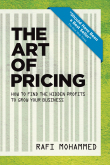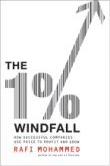Ain't Too Proud to Beg: Pricing Lessons from the Rolling Stones
Reprinted from the Harvard Business Review website.
Earlier this month the Rolling Stones kicked off a brief 2013 tour celebrating their 50th anniversary. The Stones have always been aggressive in setting ticket prices, and it appears they’ve pushed too hard this time. With arena seats reaching $600 and general admission packages in the “Tongue Pit” (close to stage) topping out at $2,000, ticket sales are reportedly tepid. As a result, tour promoters are on the verge of a “19th Nervous Breakdown.”
I have a particular interest in this topic, because I attend concerts frequently. (Over the last thirty years, I’ve seen Jimmy Buffett nearly 120 times.) I also have a professional interest because concert tickets are a great way to understand pricing — whether it’s the role of scalpers, the use of dynamic pricing, or concerns about whether high prices hurt a musician’s brand. In fact, I wrote my PhD dissertation on rock concert ticket prices.
The situation faced by the Rolling Stones — sagging sales due to high prices — is one that all companies are susceptible to. Quite simply, sometimes you overshoot. When this occurs, the challenge for a premium company is how to discount in a manner that doesn’t damage their brand nor anger customers who paid full price. Here are some tips to help front man Mick Jagger, as well as managers in the same situation, profitably navigate out of this mess.
Add Value. The most common remedy to this malady is to maintain price but add value, so customers feel they’re getting more for their money. Guitarist Keith Richards could casually drop in an interview that this may very well likely be the band’s last tour (the “hedge” in the wording is intentional). Or, as the band did at its opening gig in L.A., they could bring in special guests such as Gwen Stefani and Keith Urban. These additions make the experience more memorable, so customers value it more.
Lower Value to Justify a Lower Price. At every tour stop, the Rolling Stones made available a limited number of “for the fans” $85 tickets that instantly sold out. The catch to these discounted tickets is you don’t know where you will be sitting until show time — you could be in the “Tongue Pit” or row ZZZZ. This hurdle was designed to identify price sensitive customers. Fans who are willing to pay more (those entertaining clients, for instance) are less likely to purchase these tickets due to the chance of ending up in nosebleed seats. Now, as seats remain unsold, promoters can release more of these $85 seats, explaining that additional seats opened up due to production issues. This could be true or, of course, an excuse to make available more discounted tickets.
Manufacturers and retailers play similar games to lower costs without creating a perception that the product is less valuable. For instances, high-end appliance manufacturers can deliberately inflict cosmetic blemishes on excess inventory to then discount at a “scratch and dent” sale. While this tactic sounds strange, it can make sense by preserving the value of the brand while finding a justifiable reason to lower prices.
Sell Via a Different Distribution Outlet. Why not use scalpers to sell excess inventory? To avoid tarnishing their brand, bands often sell the best seats via scalpers (so that fans blame scalpers, not the bands themselves, for inflating prices). In a different twist, the Stones could offer bulk discounts to scalpers — who would then sell at low prices — thus shielding the band from looking weak. Analogously, this is why premium brands often sell discounted merchandise at outlet stores.
Tell a White Lie. Within each ticket price category, say the $600 one, there are thousands of tickets that vary in quality. The remaining tickets in each category (thus, the less desirable ones) can be discounted under the guise of “newly released seats.” Similarly, salespeople can tell clients that they have been “authorized” to offer loyalty discounts to their best customers.
Tell the Truth. As long as there is an explanation, it’s possible for premium companies to discount without damaging their brands. The Ritz Carlton in the Cayman Islands, for instance, drastically lowers room prices during the summer because of hurricane season. This rationale doesn’t damage the Ritz’s brand, and it allows the company to charge hefty premiums in-season. The Rolling Stones should simply admit: “We blew it.” Following this admission, prices can be cut for less desirable shows held on Sunday to Thursday evenings. This discount could lure in aging boomers who had refrained from purchasing due to the pressure of working the next day.
Offer Mixed Bundles and Volume Discounts. Customers expect discounts if they buy a mixed bundle (a lower price for buying 2 or more products: a McDonald’s Value Meal, for instance) or in large quantities. Discounts can be offered for buying, say, a Rolling Stones/Paul McCartney bundle or a Family Pack (buy 3 tickets, get the fourth for free). In this case, the rationale for employing these tactics is to provide an explanation for the price drop.
The funk that the Rolling Stones are in the midst of is yet another reminder of why pricing is such an important strategy for companies. Aside from being a key driver of profits, a misfire can have serious ramifications. The Rolling Stones invested 50 years of hard work to be crowned the “greatest rock and roll band.” It’s a shame that due to poor pricing decisions, the Rolling Stones are closing out their career amidst allegations of greed, headlines reporting on poor sales, and the taint of desperation from employing tacky discounting methods.




